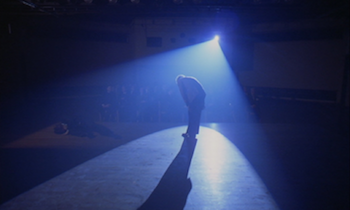Top Five Superstitions in the Theatre
It makes sense that the world of theatre is steeped in odd traditions and superstitions. You cram a bunch of creative artists together in one location for weeks or months and something weird (besides the theatre production) is bound to come out of it. Here are my top five superstitions of the theatre.
1) Saying “Macbeth” in the theatre curses the production. 
Most actors will only refer to Shakespeare’s famous tragedy as “The Scottish Play,” “The Bard’s Play” or even “Mac B.” Some believe that Shakespeare gave his three witch characters in the opening scene real spell incarnations for lines. As retaliation, a coven of actual witches cursed the play. It’s said that the actor playing Lady Macbeth tragically died on opening night in 1606 and Shakespeare himself had to step in. Dueling Macbeth productions in New York caused the great Astor Place Riot in 1849, leaving at least 25 dead and hundreds injured. Other productions have been plagued with accidents, including actors falling off the stage, mysterious deaths, and even narrow misses by falling stage weights, as happened to Laurence Olivier at the Old Vic in 1937. So, don’t tempt the witches, and don’t say Macbeth in the theatre!
2) No whistling in the theatre. 
Whistling in the theatre is considered bad luck. This superstition started in the middle of the 1600s when theatrical scenery began to fly. Sailors had extensive knowledge of ropes, rigging and knots and were hired backstage as run crew. Like on a ship, the sailors would communicate with each other through whistles to bring a backdrop in or out. Consequently, a whistling actor onstage could start a scene change early or get knocked out from incoming scenery. Luckily, we communicate through headsets and que lights in modern theatre, but the tradition of no whistling remains.
3) Tell an actor “break a leg” on opening night (never “good luck!”). 
There are a couple of credible theories on the origin of this superstition. The first comes from Elizabethan England when actors were sometimes thrown money after a good performance. They would kneel down to pick up the coins, “breaking” the straight line of their legs. Another theory comes from vaudeville performance when there were multiple acts scheduled. Masking curtains on the sides of the stage are called legs. If a vaudeville actor were to “break a leg,” they would cross in front of the legs onto stage to perform that evening and to have gotten paid. Regardless of the origin, please don’t jinx your friend and wish him or her good luck on opening night.
4) The ghost light! 
At the end of the evening, the last person in the theatre must leave a light bulb on a post, called a ghost light, lit in the middle of the stage. This light appeases the ghosts living in the theatre and gives them light to perform during the evening. It also serves a practical purpose. Backstage of theatres can be dangerously cluttered with scenery, props and costumes. Actor’s Equity, the acting union, requires that there be some light onstage at all times.
5) The Gypsy Robe! 
Every Broadway season a new Gypsy Robe is sewn and given on opening night to the chorus member in the cast who has the most Broadway chorus credits. The entire cast and crew of the musical is present for the ceremony along with the previous gypsy and an Actor’s Equity Association member. The new gypsy wears the robe, walks three times around the circle of people while cast members touch the robe for luck. Then the new gypsy visits every dressing room to bless the show. Before the robe is passed on to the next gypsy, the current gypsy must add a souvenir of their show to the robe and the entire cast signs it. Three gypsy robes can be seen at the Lincoln Center Library for the Performing Arts and two are at the Smithsonian.

